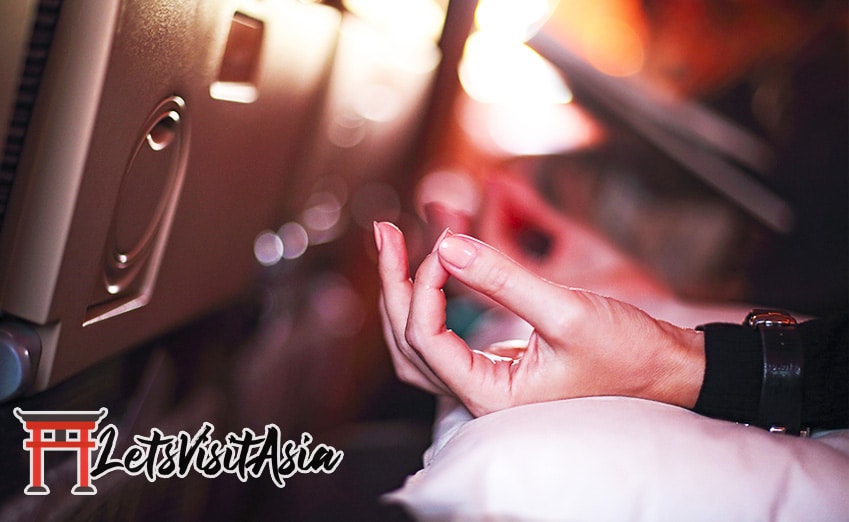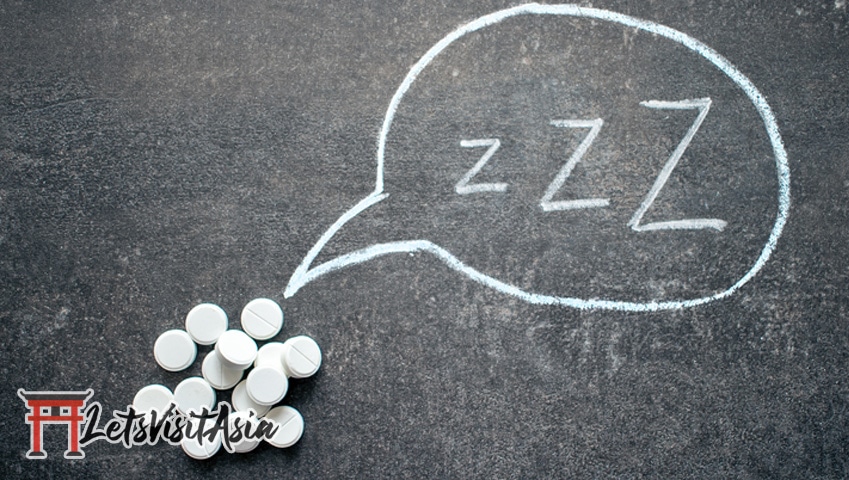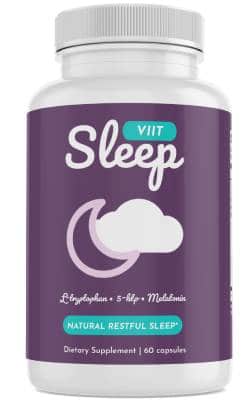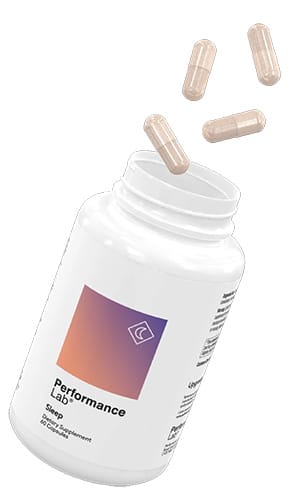Table of Contents
Air travel is something that can go both ways: you either love it or you hate it.
For some people there isn’t really an in between.
But something we can agree on is that if you have a fear of flying, it can be a massive anxiety-provoking situation.
And sleeping on the plane to get it over with faster? Yeah, you can forget about that.
If you’re part of the group that doesn’t really enjoy flying and finds it more stressful than anything else, the good news is that there are things you can do about it.
Options like noise cancelling headphones, meditation, movies, and what not are all great…but what if those don’t work?
Luckily, there are other options to help you feel less anxious when you’re 30,000 feet above and you’re about to become an insider – so you can know exactly what to do next time your schedule involves a trip on a plane.
Do Sleeping Pills Work When Flying?
Obviously, sleeping pills are specifically designed to do exactly what the name suggests—help you sleep.
Knocking back a sleeping pill in the air can help reduce nervousness and induce drowsiness.
There are a few things to consider before you take any anti-anxiety or drowsiness medication for flying:
- What are you using it for – to reduce feeling anxious or to help you sleep?
- The length of the flight versus the duration of action of the anti-anxiety medication – avoid using longer acting medications like Ambien for short duration flights, as they can leave you feeling groggy int he long haul.
- Have you used it before? You need to give it a test run before you try it out for the first time on a flight. That way, you can be sure exactly how it will affect you.
However, be mindful of using a more powerful sleeping pill if you’re not in the plane for an extended period. They may make you feel worse than you did before, which can be dangerous.
With that said, sleeping pills and anti-anxiety medications can be effective when on a plane to reduce nervousness and keep you in a calm and relaxed state…
…But because over-the-counter or prescription medications are powerful and often come with side effects, it’s better to take a more natural approach.
More natural options includes things like taking melatonin, tryptophan, Montmorency Tart Cherry, and other natural compounds that are safe with minimal risks.
Related Posts:
- Can You Bring Melatonin on a Plane?
- How to Deal With Flying Anxiety
- Where to get Sleeping Pills in Singapore
- Best Sleeping Pills for Long Flights
Melatonin for Flying Anxiety
When it comes to natural sleep aids, this is usually top of the list—and there’s a good reason for it; Melatonin is a naturally occurring hormone that the produced in response to darkness.
Studies show that exogenous supplementation might positively affects sleep propensity (time it takes to fall asleep), duration, quality, and amount of REM sleep [7]. And although melatonin doesn’t appear to be particularly effective for improving sleep disorders, it does elicit a beneficial effect for sleep issues caused by jet lag and shift work.
There are some cautions when it comes to synthetic Melatonin for flying anxiety, however.
Using it for an extended period can cause reliance issues and can interrupt your body’s natural sleep-wake cycle long-term, often making these issues worse.
Dosing may also be an issue. If you’re waking up super groggy after taking 50-100mg, it may be a sign you’re taking too much.
Always dose lower to minimize unpleasant effects and next-day drowsiness.
3 Best Sleeping Pills for Flying Anxiety
1. Valerian root
Valerian root is a common ingredient in many natural sleep aids and teas due to its sedative properties and ability to treat insomnia and anxiety. But unlike the flowers, it has a very earth odor and taste due to the volatile oils that give it its powerful sedative effect.
Valerians efficacy is attributed to its ability to increase brain levels of the calming neurotransmitter GABA by inhibiting its breakdown [8]. Although valerian is extensively used for insomnia, it also has potent anxiolytic effects because it mechanism of action is similar to that of benzos and elicits an effect much like Xanax [9].
What’s even more interesting is that some of the compounds in valerian may inhibit excessive activity in the amygdala [8, 10], the region of the brain that processes fear and strong emotional responses to stress. So using valerian on flights may have quite a few benefits!
2. Tryptophan
Tryptophan is an amino acid that is the precursor to the neurotransmitter serotonin, your happy hormone, and melatonin, your sleep hormone. So, when it comes to using tryptophan for fear of flying, it’s a great option with minimal risks.
The role of serotonin in anxiety is this: some evidence suggests that panic attacks occur due to spontaneous neuronal discharge in the region of the brain responsible for activating the fight-or-flight mechanism (our stress response) and serotonin inhibits this activity. Thereby preventing the onset of a panic attack and relieving anxiety [11].
And what’s more, tryptophan supplementation is safe and doesn’t appear to have any serious side effects once you get to your destination.
3. Montmorency Tart Cherry
Along with tryptophan, there’s another, slightly new, option during your trip: Montmorency cherry.
Tart cherries are a natural source of melatonin, which is needed to promote sleep, as it binds to receptors in the brain to help reduce nerve activity and induce relaxation. In one study, 30ml tart cherry concentrate was administered 30 minutes after waking and 30 minutes before an evening meal. Results showed elevated levels of melatonin in the group consuming the cherry juice, along with a subsequent increase in time in bed, total sleep time, and sleep efficiency [12].
But tart cherries also appear to work on the same pathway as tryptophan. And while they don’t inherently contain tryptophan, tart cherries do contain compounds that inhibit the enzyme indoleamine 2,3 dioxygenase from degrading tryptophan, thus boosting your tryptophan level and allowing for more effective conversion that can make you feel drowsy [13].
And as for any negative effects or reliance issues, you don’t need to think about those!
Flight Anxiety Medication (Over The Counter) for Fear of Flying
Whether you just want to calm yourself down or knock yourself out completely, here are some other available options for sleeping pills that we consider to be “less natural”:
Diphenhydramine + Doxylamine
Standard over-the-counter sleeping pills rely on antihistamines as the primary active ingredient to induce drowsiness. You’ll find diphenhydramine and doxylamine in products such as Benadryl, Nytol, Sominex, and Unisom.
While they may help to ease anxiousness on the way to your destination, the problem with antihistamines is that the sedative effects will often last well into the next day, which means you will probably wake up feeling like you have a nasty hangover [1].
Used long-term, they can also cause forgetfulness and headaches.
Tylenol PM
Tylenol PM is a combination of antihistamines with the pain reliever acetaminophen and is easily picked up at any pharmacy or drugstore. It is designed to induce drowsiness and relieve pain.
While Tylenol PM may help to relieve your anxiety and put you out during your flight, there are risks associated with using it when you don’t have pain. Taken with other medications containing acetaminophen can be toxic to the liver, so it’s best to avoid using acetaminophen-based products with other medications [2].
Ambien
Ambien, generic name Zolpidem, is one of the most powerful prescription sleeping pills that also just so happens to come with one of the biggest warnings. It is a sedative-hypnotic agent that affects chemicals in the brain to slow brain waves and induce drowsiness.
The problem with Ambien is that if you’re trying to knock yourself out on a flight, it’s going to do that and it’s going to do it well, which makes it less than ideal for an in-air sleeping pill. It elicits its effects by binding to GABAA receptors and increasing the effects of GABA in the central nervous system (CNS) at the same location as benzodiazepines [3].
There have been many documented side effects of Ambien including sleep walking, hallucinations, retroactive amnesia or forgetfulness, dizziness, lack of coordination, and headaches [4].
But interestingly, Ambien has been shown to ward off jet lag [5], so there may be a slightly beneficial side to it.
Xanax or Ativan
Both of these medications are benzodiazepines designed to reduce anxiety, but they also have sedative properties.
Benzodiazepines are a common drug and work by influencing levels of GABA in the brain—the inhibitory neurotransmitter that reduces brain activity, thus reduces anxious feeling[6]. With these, you get a double benefit: you induce sleep while also alleviating the nerves of an anxious traveler.
While both of them are good options for relieving anxiety during flights, the effects of Ativan appear to dissipate and leave the system quicker than Xanax, as well as has fewer risks of medication interaction, which might make it a slightly better option.
The Natural Sleep Aid Supplements We Recommend for Flying
VIIT Complete Sleep Aid
Looking for a natural sleeping aid that contains a small but effective dosage of melatonin – so it helps you sleep without interruptions but without any morning grogginess?
VIIT Complete Sleep Aid is your best bet.
We were recently introduced to this sleep supplement and we’ve been super impressed so far; their customer service has been great answering all of our questions before ordering, and the product itself arrived within a few days of ordering.
Here are the key ingredients that make VIIT Complete Sleep Aid safe, effective and our top choice:
- Melatonin
- L-Tyrptophan
- Chamomile
- Lemon Balm
- L-Theanine
- Ashwagandha
- And more.
At $42 per bottle, it’s the best priced premium sleep aid that we’ve tested (that actually works) too. And with their free shipping and 30-day returns policy, you can rest and sleep easy knowing your order is risk free.
Performance Lab Sleep
If you’re looking for something new that’s highly effective without all the risks, Performance Lab® Sleep is one of the cleanest and safest natural sleep products you can find.
It’s our favorite natural sleep aid that we usual frequently and while traveling when struggling to sleep in new places and during long flights too.
Rather than supplying one large dose of synthetic melatonin (like some conventional sleep products that leave you with severe morning grogginess), Performance Lab® Sleep supplies:
- Natural low-dose melatonin from CherryPURE® Montmorency Tart Cherry.
- With additional joint- and muscle-soothing antioxidants.
- Resulting in no morning grogginess and a great night sleep every time.
Performance Lab® Sleep synergizes with CherryPURE®, encouraging natural melatonin and serotonin for drowsiness, along with 3 magnesium forms to promote sleep-supportive muscle relaxation.
Click here to view lowest price for Performance Lab Sleep
or
Other Ways to Help Control Anxiety While Flying
Aside from putting yourself out during travel, if you want to stay clear of any sort of medication, there are other simple yet highly effective ways to help control your anxiety. Try these tips:
Avoid stimulants
That latte pre-flight or a bit of alcohol before you board might seem like a good idea, but as it turns out, it could be working against you. If you want to limit feeling anxious during travel, stimulants are something you’ll want to avoid—in any capacity.
Stimulants work by enhancing catecholamine neurotransmission in the brain and disrupting normal communication between brain cells, specifically the dopamine neurotransmitter system. By activating the central nervous system, they work increase alertness and mood, but they can also increase anxiety.
Save the stimulants for once you’ve touched down.
Take magnesium
Magnesium exerts a wide range of effects in the body, but it’s especially good for inducing relaxation and limiting anxious feelings. Studies have shown that blood plasma and brain magnesium levels are positively correlated with anxiety-related behavioral responses [14], and that supplementation with magnesium may reduce expression of these behaviors.
This may be in part due to magnesium’s ability to modulate activity of the hypothalamic-pituitary-adrenal (HPA) axis, which is the core of the stress response system.
If you’re looking for a quick response, magnesium citrate or bisglycinate are your best bets.
- Related Post: Performance Lab Multivitamin Review
Meditation and visualization
Meditation and visualization practices can be great for reducing nervousness, both in and out of the air.
If you’re prone to airplane anxiety, visualization a smooth and anxiety-free flight the day before may help to prevent it from arising the day of.
If you don’t know how to visualize, use these tips:
Close your eyes and picture a smooth and easy airport experience. Avoid thinking about being on the plane at this point, just focus your attention on the airport.
Imagine a short security line, visualize yourself walking to your gate with a smile. Fill in any positive details along the way. And finally, picture the perfect flight. Smooth, easy, and completely anxiety-free.
In-fight meditation is also a great practice if you’re feeling anxious.
While an airplane may seem like an odd space for meditation, it’s actually the perfect place because there’s nowhere you can be but present—no kids distracting you, no emails or text messages going off, just zero distractions.
Contrary to what most people think though, mediation isn’t about clearing your mind or emptying your headspace. It’s about embracing distractions and letting your mind run with them.
Flight anxiety is usually based in some sort of fear—for example, you feel turbulence and you tell yourself the plane is going down—but with meditation, you come back to the breath so there’s less space to generate those stories.
Rather, you come into your felt experience and allow space for that anxiety, but without the narrative.
Do some deep breathing
If you’ve never done deep breathing before, it can elicit some super powerful results.
Deep, slow breathing helps to stimulate your vagus nerve, which is the primary nerve responsible for parasympathetic control of your respiratory, digestive, and urinary system, and is also a major control of your heart rate and breathing rate.
Activating the vagus nerve helps to increase parasympathetic activity, which induces calmness in the body. The key to stimulating the vagus nerve is full relaxation.
If you start feeling anxious at any point while you travel, use the “box breathing” technique:
1. Exhale through your mouth to expel all of the air out of your lungs and belly to a slow count of 4
2. Hold your breath for another slow count of 4
3. Inhale deeply through your nose to completely fill your lungs, allowing the breath to move into your belly for a slow count of 4
4. Hold your breath for another slow count of 4
5. Exhale through your mouth to expel all of the air out of your lungs and belly to a slow count of 4
6. Repeat as needed
Final Word on Taking Sleeping Pills on Flights To Help Anxiety
Whether you travel often or travel fairly infrequently, flight anxiety can make the entire experience pretty unpleasant…but it doesn’t have to be.
While sleeping pills are often the go-to for travelers to knock themselves out and get the flight over with, they can have some nasty side effects that make taking them less than ideal.
Natural alternatives like melatonin are also used with success, but things like tryptophan and Montmorency cherry also do the job just as well with little to no side effects or grogginess the next day.
Now that you’re an insider on the best flight tips to reduce anxious feelings, next time you’re getting ready to travel, double check that you’ve packed your bottle of VIIT Complete Sleep Aid or Performance Lab Sleep in your carry-on luggage to enable you to get through that flight without having to deal with your anxiety.
- To Buy VIIT Complete Sleep Aid, Click Here
- To Buy Performance Lab Sleep, Click Here or read our full review
References:
-
O Abraham, L Schleiden, SM Albert. Over-the-counter medications containing diphenhydramine and doxylamine used by older adults to improve sleep. Int J Clin Pharm. 2017; 39(4): 808-817.
-
E Yoon, A Babar, M Choudhary, M Kutner, N Pyrsopoulos. Acetaminophen-Induced Hepatotoxicity: a Comprehensive Update. J Clin Transl Hepatol. 2016; 4(2): 131-142.
-
HD Langtry, P Benfield. Zolpidem. A review of its pharmacodynamic and pharmacokinetic properties and therapeutic potential. Drugs. 1990; 40(2): 291-313.
-
E Matheson, BL Hainer. Insomnia: Pharmacologic Therapy. Am Fam Physician. 2017; 96(1): 29-35.
-
A Suhner, P Schlagenhauf, I Höfer, R Johnson, A Tschopp, R Steffen. Effectiveness and tolerability of melatonin and zolpidem for the alleviation of jet lag. Aviat Space Environ Med. 2001; 72(7): 638-646.
-
H Möhler, JM Fritschy, U Rudolph. A new benzodiazepine pharmacology. J Pharmacol Exp Ther. 2002; 300(1): 2-8.
-
A Brzezinski. Melatonin in humans. N Engl J Med. 1997; 336(3): 186-195.
-
PJ Houghton. The scientific basis for the reputed activity of Valerian. J Pharm Pharmacol. 1999; 51(5): 505-512.
-
K Murphy, ZJ Kubin, JN Shepherd, RH Ettinger. Valeriana officinalis root extracts have potent anxiolytic effects in laboratory rats. Phytomedicine. 2010; 17(8-9): 674-678.
-
HY Jung, DY Yoo, SM Nam, et al. Valerenic Acid Protects Against Physical and Psychological Stress by Reducing the Turnover of Serotonin and Norepinephrine in Mouse Hippocampus-Amygdala Region. J Med Food. 2015; 18(12): 1333-1339.
-
AC Pyle, SV Argyropoulos, DJ Nutt. The role of serotonin in panic: evidence from tryptophan depletion studies. Acta Neuropsychiatrica. 2004; 16: 79–84.
-
G Howatson, PG Bell, J Tallent, B Middleton, MP McHugh, J Ellis. Effect of tart cherry juice (Prunus cerasus) on melatonin levels and enhanced sleep quality. Eur J Nutr. 2012 Dec; 51(8): 909-16.
-
A Liu, R Tipton, W Pan, JW Finley, A Prudente, N Karki, J Losso, F Greenway. (2014). Tart cherry juice increases sleep time in older adults with insomnia. FASEB J. 2014 Apr; 28(S1).
-
NB Boyle,C Lawton, L Dye. The Effects of Magnesium Supplementation on Subjective Anxiety and Stress-A Systematic Review. Nutrients. 2017; 9(5): 429.




